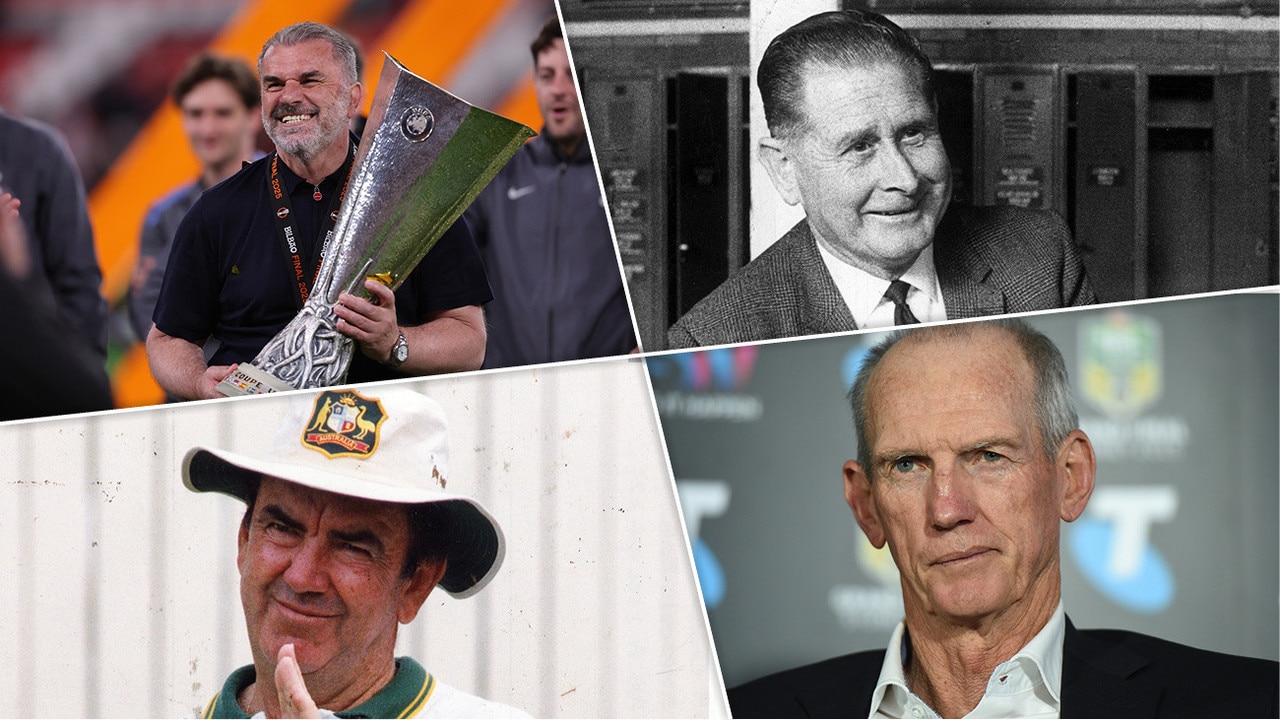Questions on Amazon Prime’s T20 World Cup broadcast as Australian interest plunges
The T20 World Cup has passed by unnoticed by many Australian sports fans and questions need to be asked of broadcaster Amazon Prime report BEN HORNE and SHANNON GILL.
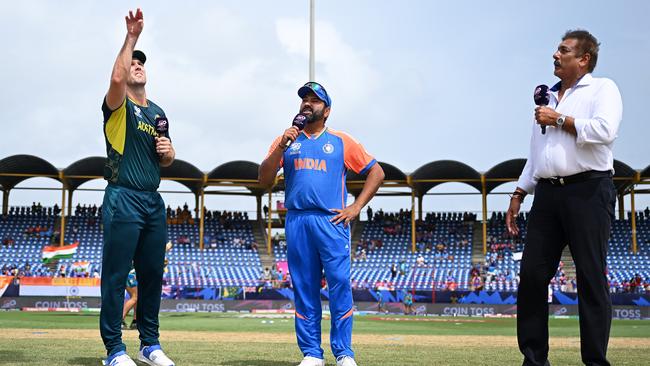
Cricket
Don't miss out on the headlines from Cricket. Followed categories will be added to My News.
Cricket has pocketed a few extra dollars by selling its World Cup to Amazon Prime, but it’s paying a high price for doing so.
The level of interest in the event in Australia was at an all-time low, and that’s a worry for a deal that’s still got more than three years to run.
Yes, the extreme time zone difference to the West Indies would have been limiting for viewers even if the tournament was still on Channel 9 or Fox Cricket, but at what point did average sports fans in Australia even clock the fact the World Cup was on, let alone that it was being shown on Prime?
It might have helped Australia escape as much scrutiny as it otherwise could have expected for bombing out against Afghanistan and India and butchering what really should have been a walk-up semi-final berth against their World Cup bunnies South Africa.
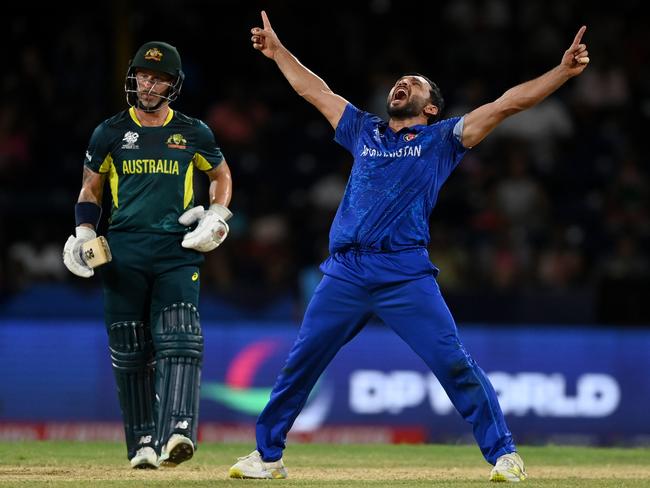
But overall it’s bad for Australian cricket, because if there’s one thing worse than having the microscope run over you, it’s being irrelevant.
It’s understood Amazon Prime could be paying upwards of $80 million a year for the International Cricket Council rights in Australia, which would be about 30 per cent more than rivals were prepared to cough up.
Over four years that’s a fair bit of money, but it’s not doing much for the long-term prosperity of cricket in Australia.
Australia’s number one authority on media rights value, global sports advisor Colin Smith, believes it’s been a disaster.
“I think Amazon’s done a really bad job of promoting that they are the broadcaster,” he told CODE Sports.
Amazon Prime was offering a 30 day free trial that encompassed the whole tournament and effectively neutralised the financial argument of signing up to another streamer. However its film noir commercial only mentioned the offer in small print for a split second after a minute of Usman Khawaja walking around a suburban horror pastiche.
Smith points out that they also have the Australian rights to Italian, French and German football, along with Euro Rugby and ATP Tennis, unbeknownst to most sports fans.
“It’s all best kept secret.”
He believes that it is indicative of Amazon’s Prime streaming arm being just a portion of its larger business, making it a very different proposition to Kayo or Netflix.
Yet cricket’s problem is that approach may also do long-term commercial damage to rights values in Australia.
“It still may fulfil what Amazon want out of it, but between the ICC and Cricket Australia they’ve really got to push promotion with them,” Smith said.
“If people want to buy the rights again they look at historically what’s been the viewership. I would suggest the numbers haven’t been great, so when they go to market next time broadcasters will say ‘nobody was interested, so we won’t buy the rights.”
Action will need to be swift, the next Amazon-screened event will be the women’s World Cup in Bangladesh in October.
It will be a major shame for the game if Australia’s most successful international sporting team also becomes invisible on Amazon after all the growth that’s been achieved.
Amazon Prime paid a lot of money to not even bother hiring its own talent to front a pre-match panel, or to keep viewers updated during rain delays and breaks in play, which makes it wonder how much they really care about Australian cricket.
If this tournament has exposed anything at all, it’s that Australia is no longer the international cricketing powerhouse it was in the old days when Australia and England used to rule the world.
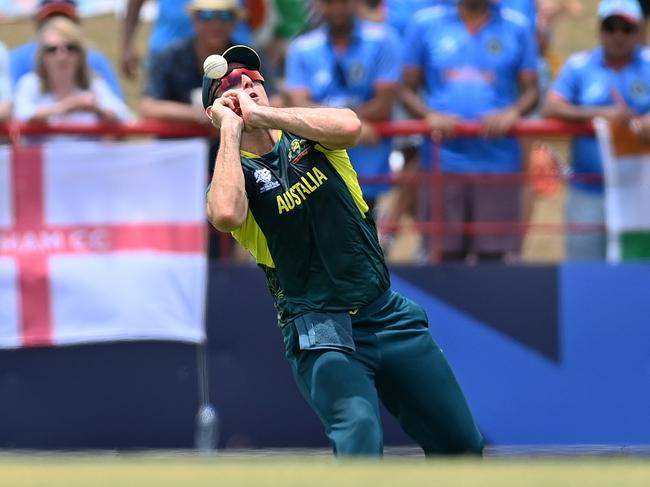
Australia was treated like a low-ranked team with the shocking schedule it was tossed up for the World Cup.
And when you consider the Australian viewership compared to the mega markets of India, Pakistan, USA and UK, perhaps they are paying the price these days for being perceived as a – relatively – small market team.
For many reasons, this has been a wonderful World Cup.
The ICC deserves enormous credit for taking the tournament to the USA and the challenge now is to continue to schedule high-level international content in America leading into the 2028 LA Olympics.
Despite the logistical challenges, it’s also been great to bring the World Cup back to the West Indies, where the vibe around the islands has been fantastic even if that hasn’t necessarily been reflected in massive crowds at the matches.
It’s important cricket doesn’t put the Windies in the ‘too hard basket’ and continues to invest.
However, in many respects this has been a forgettable World Cup and the ICC need to take immediate steps to return the integrity to future events that has been cast aside in this tournament.
Rival teams have had jack of the red carpet that is now routinely rolled out for India at these events.
India was the only team which had a predetermined semi-final venue set in stone for them.
They were the only team that played exclusively day matches right through the tournament, meaning their sleep and travel routines were the least disrupted.
“We knew all about it from the start, and that’s a decision way above my pay grade. And to be honest, I think it could be an advantage for them,” England coach Matthew Mott said before his team’s semi-final in Guyana, which India knew lay ahead of them for literally months.
England themselves were looked after by playing blocks of matches in the one location, therefore limiting the amount of flights they had to take around the islands.
At the other end of the spectrum was Sri Lanka who were forced to play their four group matches in four different places – New York, Dallas, Florida and St Lucia.
Next worst was Australia who also had to island hop through the whole tournament and then were the only team to cop a night-time match into a morning match with only one day in between.
By the time Australian fans woke up to the fact the World Cup was on when Mitchell Marsh’s team lost to Afghanistan, the campaign was all over less than 48 hours later due to the bizarrely rapid nature of the schedule that didn’t let drama and anticipation build.
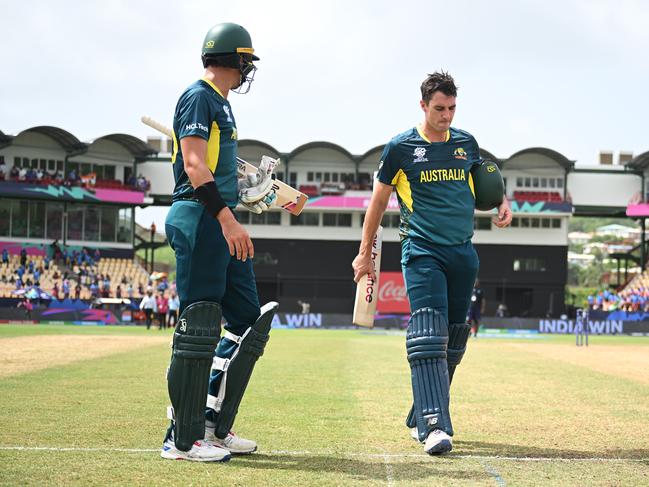
Surely racing through the group stage and then allowing the Super 8s stage to breathe would make more sense.
Everybody understands the importance of India to the game and the magnitude of the sub-continental TV market, but starting non-India matches after 8.30pm local time in the West Indies was a farce and prevented locals from being able to attend.
Fans also complained about ticket prices being prohibitive in America and the West Indies and also the buying process convoluted.
The other dangerous tightrope the ICC is treading – although one they probably don’t care about – is overcooking the golden goose.
World Cups used to be special because they happened so infrequently, they were rare moments in a player’s career that could not be wasted.
But because it’s become the ICC’s main source of revenue – if you don’t win a World Cup one year, you can always try your luck the next, and that’s not good.
Less is more if you want World Cups to truly mean something like they do in football and rugby.
But as the Amazon Prime decision proves, it’s all about TV these days.
“It’s like the Olympics isn’t it, you anticipate that build up? It’s going to be fascinating in a few years,” David Warner said during the tournament about whether the World Cups he fought so hard to win three of, are being cheapened by the game.
“Everything has revolved around TV rights. That build-up has led to where we are today.
“I think you have to have that gap, whether it’s every two years, whether you have a T20 and then two years later you have the ODI World Cup.
“It’s challenging because the ICC needs to make money too to feed the other nations as well.
“I think it’s important that we, as a whole, stick together and map out, what is the plan?
“What’s the plan with Test cricket? What’s the plan with one-day cricket? Is it going to survive?
“There has to be conversations to protect the game of cricket itself.”
More Coverage
Originally published as Questions on Amazon Prime’s T20 World Cup broadcast as Australian interest plunges



